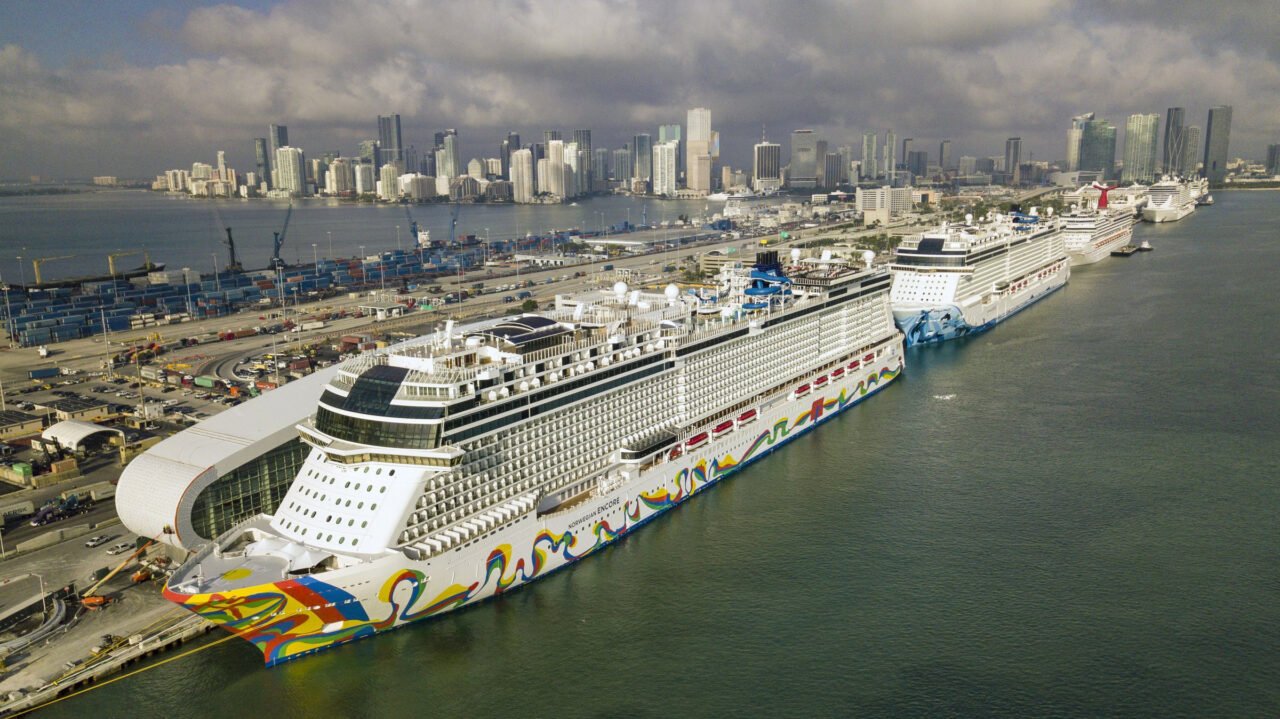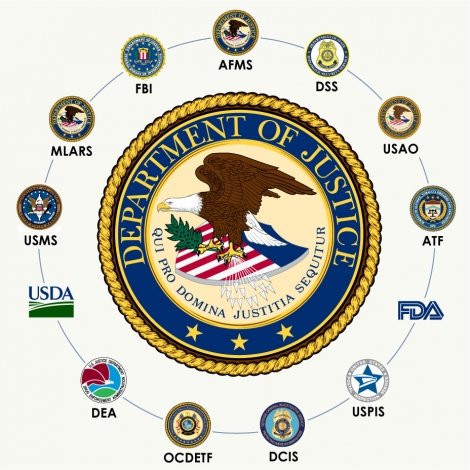Even If The Four Cruise Lines Are Found Guilty Or Settle Libertad Act Lawsuits Filed Against Them, U.S. Government Could Still Seize Their Vessels. OFAC Has Five-Years From 2019.
/If The Four Cruise Lines Are Found Guilty Or Settle The Libertad Act Lawsuits Filed Against Them, Might Then The U.S. Government Have Claim Upon Their Vessels?
Libertad Act Authorizes Asset Forfeiture.
OFAC Has Five Years To Commence Enforcement Action- Cruises Ceased On 4 June 2019.
What Would U.S. Government Do With 2,000-Passenger Vessel? Need To Re-flag? Jones Act Implications? Cruise Lines May Have Sold Vessels Used For Cuba Voyages.
Sounds Outlandish?…. Who Thought The Libertad Act Would Be Suspended For Twenty-Three Years? That The First Defendants Would Be American Companies Rather Than Foreign Companies?
The Trump Administration on 2 May 2019 made operational Title III of the Cuban Liberty and Democratic Solidarity Act of 1996 (known as “Libertad Act”). Title III authorizes lawsuits in United States District Courts against companies and individuals who are using a certified claim or non-certified claim where the owner of the certified claim or non-certified claim has not received compensation from the Republic of Cuba or from a third-party who is using (“trafficking”) the asset. To date, forty-four (44) lawsuits have been filed.
From Libertad Act: (d) Trading with the Enemy Act.-- (1) Civil penalties.--Subsection (b) of section 16 of the Trading with the Enemy Act (50 U.S.C. App. 16(b)), as added by Public Law 102- 484, is amended to read as follows: (b)(1) A civil penalty of not to exceed $50,000 may be imposed by the Secretary of the Treasury on any person who violates any license, order, rule, or regulation issued in compliance with the provisions of this Act. (2) Any property, funds, securities, papers, or other articles or documents, or any vessel, together with its tackle, apparel, furniture, and equipment, that is the subject of a violation under paragraph (1) shall, at the direction of the Secretary of the Treasury, be forfeited to the United States Government. (3) The penalties provided under this subsection may be imposed only on the record after opportunity for an agency hearing in accordance with sections 554 through 557 of title 5, United States Code, with the right to prehearing discovery. (4) Judicial review of any penalty imposed under this subsection may be had to the extent provided in section 702 of title 5, United States Code.
From Jones Act: “The Merchant Marine Act of 1920, known as the Jones Act, is a federal statute establishing support for the development and maintenance of a merchant marine in order to support commercial activity and serve as a naval auxiliary in times of war or national emergency (See 46 USC § 50101). The statute, among other things, requires shipping between US ports to be conducted by US-flag ships. (46 USC § 50102.) 46 U.S. Code § 50101 - Objectives and policy: (a) Objectives.—It is necessary for the national defense and the development of the domestic and foreign commerce of the United States that the United States have a merchant marine— (1) sufficient to carry the waterborne domestic commerce and a substantial part of the waterborne export and import foreign commerce of the United States and to provide shipping service essential for maintaining the flow of the waterborne domestic and foreign commerce at all times; (2) capable of serving as a naval and military auxiliary in time of war or national emergency; (3) owned and operated as vessels of the United States by citizens of the United States; (4) composed of the best-equipped, safest, and most suitable types of vessels constructed in the United States and manned with a trained and efficient citizen personnel; and (5) supplemented by efficient facilities for building and repairing vessels. (b) Policy.— It is the policy of the United States to encourage and aid the development and maintenance of a merchant marine satisfying the objectives described in subsection (a). (Pub. L. 109–304, § 8(b), Oct. 6, 2006, 120 Stat. 1556; Pub. L. 111–84, div. C, title XXXV, § 3511, Oct. 28, 2009, 123 Stat. 2722.)”
From Office Of Foreign Assets Control (OFAC): Forfeiture of property used in a violation of the Cuban Assets Control Regulations (CACR) exists independently of the Libertad Act.
HAVANA DOCKS CORPORATION VS. CARNIVAL CORPORATION D/B/A/ CARNIVAL CRUISE LINES [1:19-cv-21724; Southern Florida District]
Colson Hicks Eidson, P.A. (plaintiff)
Margol & Margol, P.A. (plaintiff)
Jones Walker (defendant)
Boies Schiller Flexner LLP (defendant)
Akerman (defendant)
HAVANA DOCKS CORPORATION V. MSC CRUISES SA CO, AND MSC CRUISES (USA) INC. [1:19-cv-23588; Southern Florida District]
Colson Hicks Eidson, P.A. (plaintiff)
Margol & Margol, P.A. (plaintiff)
Venable (defendant)
HAVANA DOCKS CORPORATION V. NORWEGIAN CRUISE LINE HOLDINGS, LTD. [1:19-cv-23591; Southern Florida District]
Colson Hicks Eidson, P.A. (plaintiff)
Margol & Margol, P.A. (plaintiff)
Hogan Lovells US LLP (defendant)
HAVANA DOCKS CORPORATION VS. ROYAL CARIBBEAN CRUISES, LTD. [1:19-cv-23590; Southern Florida District]
Colson Hicks Eidson, P.A. (plaintiff)
Margol & Margol, P.A. (plaintiff)
Holland & Knight (defendant)
JAVIER GARCIA-BENGOCHEA V. CARNIVAL CORPORATION D/B/A/ CARNIVAL CRUISE LINE, A FOREIGN CORPORATION [1:19-cv-21725 Southern Florida District; 20-12960 11th Circuit Court of Appeals]
Colson Hicks Eidson, P.A. (plaintiff)
Margol & Margol, P.A. (plaintiff)
Creed & Gowdy (plaintiff- appellate)
Jones Walker (defendant)
Boies Schiller Flexner LLP (defendant)
Akerman (defendant)
JAVIER GARCIA-BENGOCHEA V. NORWEGIAN CRUISE LINE HOLDINGS, LTD. [1:19-cv-23593; Southern Florida District]
Colson Hicks Eidson, P.A. (plaintiff)
Margol & Margol, P.A. (plaintiff)
Creed & Gowdy, P.A. (plaintiff)
Hogan Lovells US LLP (defendant)
JAVIER GARCIA-BENGOCHEA VS. ROYAL CARIBBEAN CRUISES, LTD. [1:19-cv-23592; Southern Florida District; 20-14251 11th Circuit Court of Appeals]
Colson Hicks Eidson, P.A. (plaintiff)
Margol & Margol, P.A. (plaintiff)
Creed & Gowdy, P.A. (plaintiff)
Holland & Knight (defendant)



